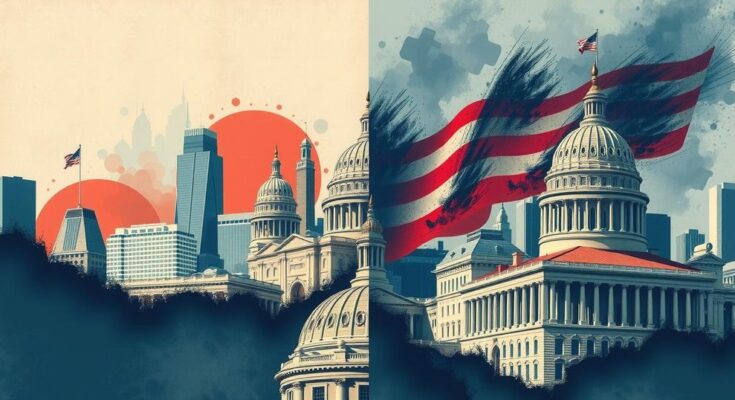Dhruv Rathee faces trolling post-Delhi elections after AAP’s defeat by BJP, which secured 50 seats to AAP’s 20. He attributes this loss to the BJP’s obstruction of AAP’s governance and questions future voter focus on critical issues. Social media reactions include sarcasm regarding his consistent support for losing parties in recent elections.
YouTuber Dhruv Rathee is currently facing significant backlash following the recent Delhi election results, where the Bharatiya Janata Party (BJP) secured a decisive victory over the Aam Aadmi Party (AAP). The early morning results indicated that the BJP won 50 seats, leaving AAP with only 20. This development marks a major comeback for the BJP in the Delhi political landscape after years of competition with Kejriwal’s party.
Rathee, who is known for his anti-BJP commentary and resides in Germany, responded to the election outcome by attributing AAP’s loss to a lack of productive governance in Delhi. He criticized BJP’s role in obstructing AAP’s administration through various means, including legal maneuvering by the Lieutenant Governor and the involvement of agency actions against AAP leaders. Rathee stated that since the introduction of the GNCTD Act of 2023, Delhi has been effectively under BJP’s indirect control.
Furthermore, he expressed concern over whether the electorate would continue to prioritize critical issues such as air pollution and infrastructure deterioration, or if the BJP would manage to divert attention through communal narratives as witnessed in other states. Despite his analytical perspective, Rathee has been subjected to trolling on social media, with users mocking his political affiliations and predicting further electoral losses for the I.N.D.I.A alliance he supports.
The Delhi elections are a significant event in Indian politics, particularly as they reflect the shifting power dynamics in the region. The recent victory of the BJP against AAP indicates a notable shift from previous years, showcasing the BJP’s resurgence in urban areas. The political environment remains contentious, especially given the rising tide of criticism towards various political entities and the role of social media in shaping public discourse.
In conclusion, Dhruv Rathee’s reaction to the Delhi election results highlights the complex interplay of political influence and public sentiment in contemporary Indian politics. His critique of BJP’s governance tactics reflects broader concerns among voters about accountability and transparency. Despite facing ridicule from critics, the implications of this election could shape the narrative for future elections in Delhi and beyond.
Original Source: www.livemint.com




